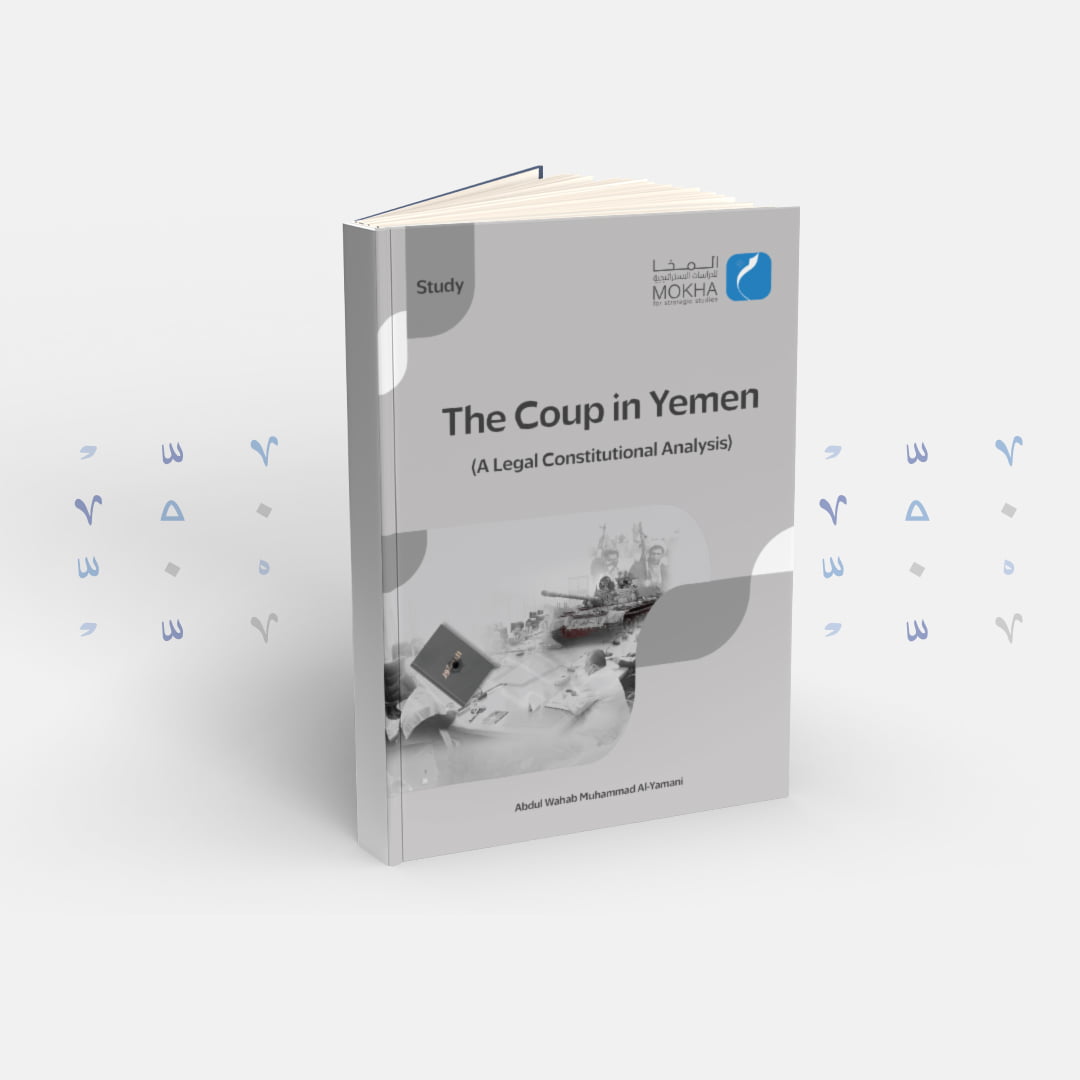The Coup in Yemen (A Legal Constitutional Analysis)

Abdulwahab Muhammad Al-Yamani
Coup d’états are an ancient phenomenon in political systems and one from which Yemen has suffered. The Houthis’ actions, in alliance with President Saleh, on September 21, 2013, were indeed a form of a coup against the state.
This book discusses the situation of legitimate governments, which now face a dangerous situation due to the increasing international developments due to the changing of the international community’s stances on coups, despite international law guaranteeing the legal foundations for inter-state relations. Nonetheless, the great powers, who have hegemony on the field of conflict, have begun to interpret the principles of international law in this regard, according to what piques their interests. This has drawn the attention of some observers of international affairs to the emergence of something like an international custom regarding the issue of the legitimacy of coup governments. This, in itself, is something of revolution in international relations, given that this transformation in these states’ policies is a change in the type of government and government forms that are considered legitimate.
The phenomenon of double standards among the international community in dealing with coup d’états is an old new phenomenon: old in being dominated by interests and political leanings, and new in terms of the new reality we face today in international policy toward coups.
This book aims to introduce the concepts of coup d’état and revolution and the difference between them, explain coups’ legal status, according to the general laws of international law and principles of constitutional law, while discovering the goal and aim of countries that are legitimizing coup d’états, and the means and tools followed to do so. It then aims to apply the results of the study to the Yemeni case, as a model for the international and regional trend of legitimating coup d’états.
The book contains an introduction, six chapters and a conclusion. Chapter One discusses the concept of political and military coups. Chapter Two discusses the legal status of coup d’états, according to the general rules of international law. As for Chapter Three, it discusses the legal status of coup d’états, according to constitutional law.
In Chapter Four, the researcher presents examples of double standards in dealing with coup d’états by relevant states, as compared to dealing with popular revolutions. He also presents in Chapter Five the means followed to legitimate these coups by these states, whether on the political or economic level.
In Chapter Six, the book turns to the case of Yemen as a model in the international and regional trend of legitimating coups and the violations of the domestic parties by foreign parties, whether on the formal or party line. It then touches on the regional and international dimensions. The conclusion of the book includes a number of outcomes and suggestions.
The book is brief and valuable and is a reference for the Yemeni issue in light of the absence of research on the events of September 21, 2014, their results and how they influenced local, regional and international stances.

